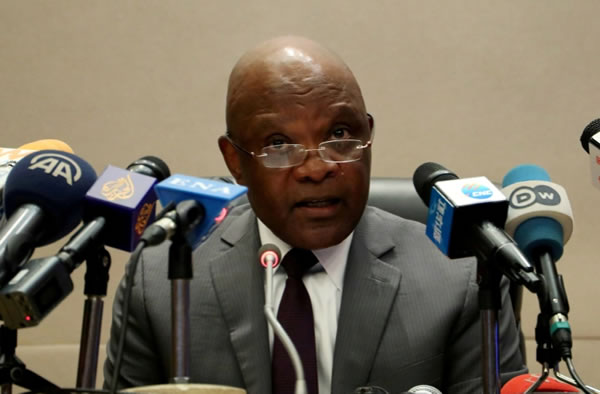
The African Union’s health watchdog has appealed for calm over Omicron, the new, heavily mutated coronavirus variant which has prompted many countries to impose new restrictions.
The variant was first reported to the World Health Organization (WHO) by South Africa a week ago, and has quickly showed up across continents, deepening fears of another deadly wave of infections and signalling that the nearly two-year battle against the pandemic is not over.
But John Nkengasong, head of the Africa Centres for Disease Control and Prevention (Africa CDC), on Thursday urged moderation.
“We are very concerned but are not worried that the situation cannot be managed,” he told a press briefing. “There is no need to panic. We are not defenceless.”
Announced a week ago, the Omicron has already seen some European governments swiftly reintroduce tough measures, including mandatory mask-wearing and social distancing, while travel restrictions, mostly targeting Southern Africa, have also come into force.
The Africa CDC said it had been preparing “for the longest time” for the possibility of a new variant and was well placed to contain a surge in cases.
The Omicron variant has been reported in four African countries, including South Africa, Ghana, Nigeria and Botswana, it said.
“This will be the fourth wave that we are facing as a continent,” Nkengasong said.
“We know how to deploy rapid responders, we know how to provide the interventions that are necessary,” he said, adding that vaccines were also “flowing very steadily” into the continent.
However, vaccine uptake in Africa, a continent of nearly 1.2 billion people, has been low, with only 7 percent of the population fully inoculated.
Immunisation campaigns suffered a slow start due to poor access to jabs, and in some countries hesitancy surrounding COVID-19 vaccines is widespread.
Africa needs an estimated 1.5 billion vaccine doses to immunise 60 percent of its inhabitants and achieve some level of herd immunity. So far, the continent has received about 400 million doses.
The United Nations and the WHO in October criticised rich nations’ rollout of booster shots, saying this crimped poorer nations’ access to jabs.
Source: NEWS AGENCIES























